By Shedrack Okpara
ApsaraDB RDS is an Alibaba Cloud-based online database service that is robust, dependable, and scalable. It is built on top of the Apsara Distributed File System and high-performance SSDs. MySQL, SQL Server, PostgreSQL, and MariaDB TX are all supported by ApsaraDB RDS. ApsaraDB RDS offers a range of disaster recovery, backup, restore, monitoring, and migration tools to make database management easier. These cloud-hosted databases are around two-thirds less expensive than self-managed databases on Elastic Compute Service (ECS) instances, and about nine-tenths less expensive than self-managed databases on third-party database servers.
MySQL Workbench was designed with database architects, developers, and DBAs in mind, it offers a single visual tool. MySQL Workbench includes data modeling, SQL development, server configuration, user administration, backup, and other administration utilities. MySQL Workbench is a database management system that runs on Windows, Linux, and Mac OS X.
For this exercise, you will need:
On your browser search for "MySQL workbench" and click on the first search result:
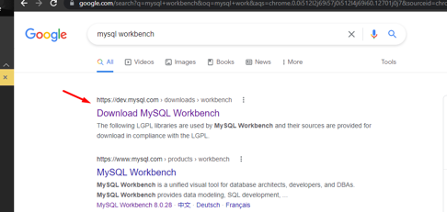
On the next page, select your preferred operating system from the drop-down and click download:
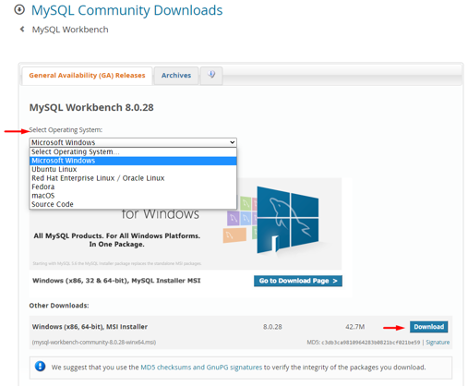
You will be asked to Login or Sign Up. This is not necessary, if you do not have an Oracle account you can click on "No thanks, just start my download" at the bottom to proceed:
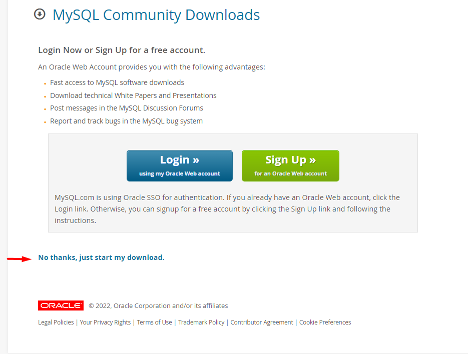
Once the download is complete, launch the installer and proceed with the installation, you can leave all settings as default and select next to the end:
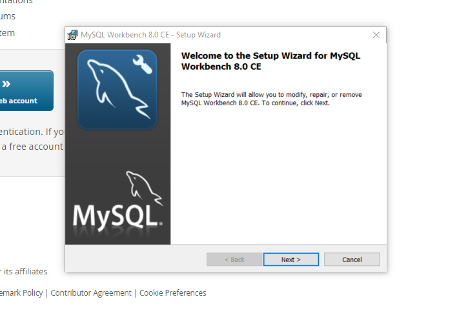
After installation you can start up the application, it should look like the screenshot below:
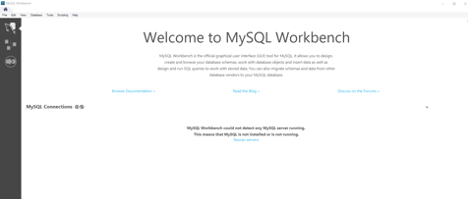
Login to your Alibaba Cloud console, search and select ApsaraDB RDS:
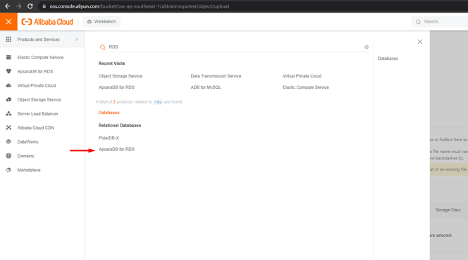
Select "instances" then "create instance":
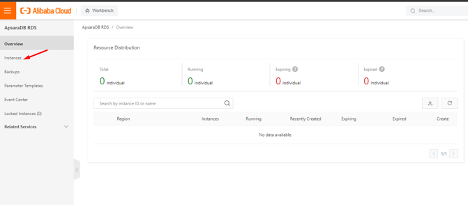
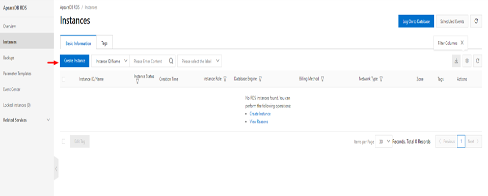
On the basic configuration page, make the appropriate selections that best suit your needs: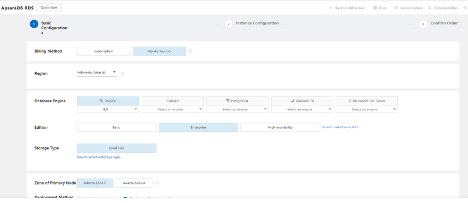
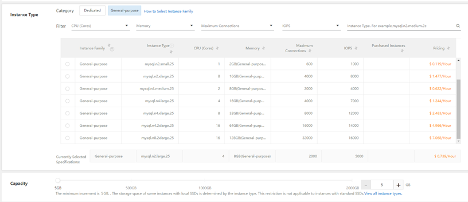
On the instance configuration page, ensure you select the correct VPC and Vswitch you want the instance to be deployed:
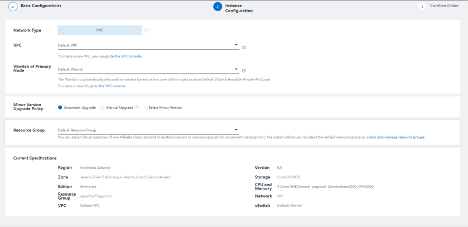
Confirm your order and pay to startup the instance:
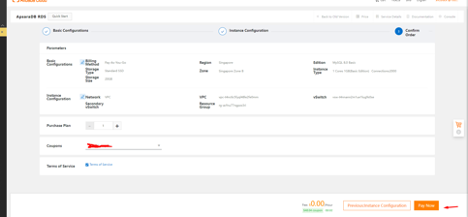
After the creation of the RDS instance, go to the ApsaraDB RDS console and select the newly created RDS instance:
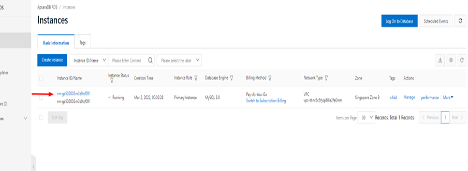
Select the "Database Connection" on the left pane:

Select "apply for public endpoint". Note, this step is important if you intend to connect via the public network, which is what we are doing in this case:

Click on "configure whitelist" which is beside the Public endpoint:
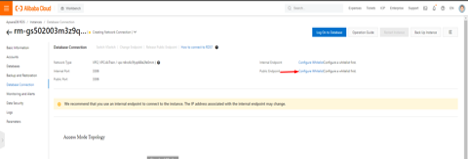
On the next page, you'll need to create a whitelist, which is where you decide which IP addresses are allowed to connect to your databases. You can limit access to a single IP address, known IP addresses, or everyone (which we strongly advise against), but for the sake of this tutorial, let's configure everyone:
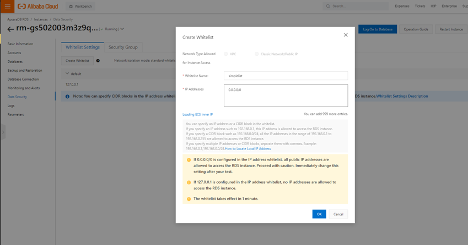
We also have to create an account that we can use to access DB, on the instance page select "Accounts" and create a privileged account:
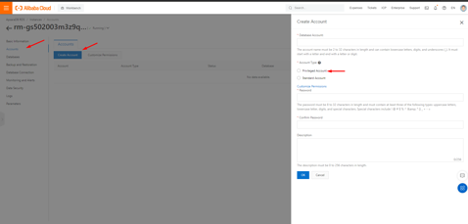
Go back to the "Database Connection" page and copy the "Public Endpoint":
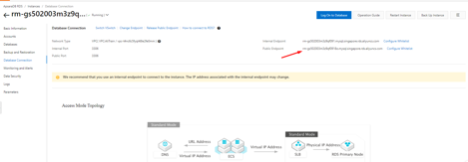
Launch the MySQL workbench and click on add new connection:
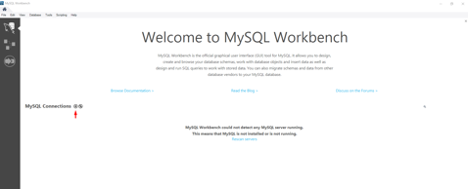
Input your desired connection name, under Hostname, paste the Public Endpoint you copied earlier, also enter the username you created earlier and click on "store in vault" to insert the password then select OK to add connection:
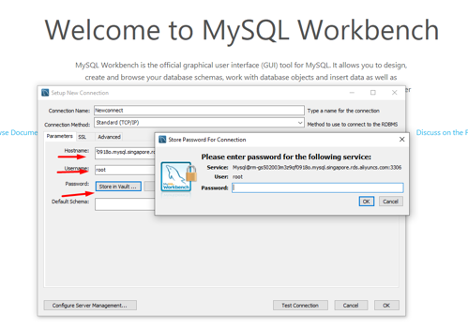
You are all done, now double click on the connection to connect to your DB on Alibaba Cloud:
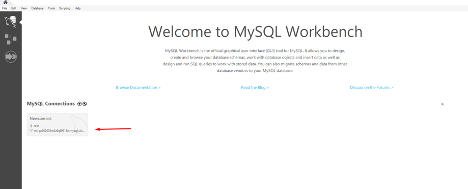
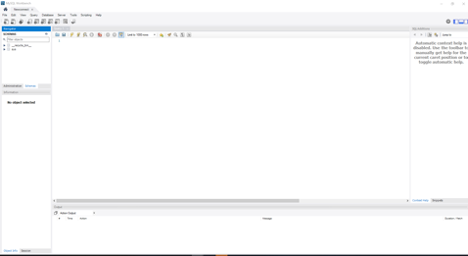
This is a great technique to manage your cloud databases since it allows you to limit the number of people who have access to your Alibaba Cloud account. It's also great for developers who are already familiar with the technology.
Transcribe Speech to Text in Real-Time Using Alibaba Cloud Intelligent Speech Interaction
How to Manage Application Secrets Using Alibaba Cloud Key Management Service

1,352 posts | 478 followers
FollowAlibaba Cloud Indonesia - January 20, 2023
Alibaba Cloud Community - March 28, 2022
ferdinjoe - January 2, 2024
GAVASKAR S - June 16, 2022
AlenaS - May 13, 2021
JwdShah - September 2, 2024

1,352 posts | 478 followers
Follow PolarDB for MySQL
PolarDB for MySQL
Alibaba Cloud PolarDB for MySQL is a cloud-native relational database service 100% compatible with MySQL.
Learn More Database for FinTech Solution
Database for FinTech Solution
Leverage cloud-native database solutions dedicated for FinTech.
Learn More Database Migration Solution
Database Migration Solution
Migrating to fully managed cloud databases brings a host of benefits including scalability, reliability, and cost efficiency.
Learn More Oracle Database Migration Solution
Oracle Database Migration Solution
Migrate your legacy Oracle databases to Alibaba Cloud to save on long-term costs and take advantage of improved scalability, reliability, robust security, high performance, and cloud-native features.
Learn MoreMore Posts by Alibaba Cloud Community